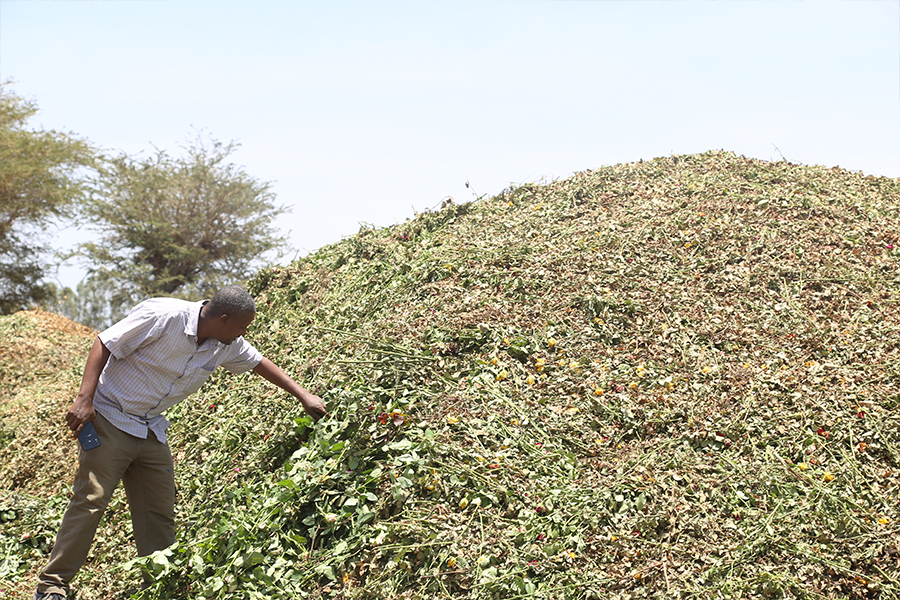
Fortune News | Jan 27,2024
Sep 26 , 2021
By Christian Tesfaye
Just about everybody likes Sun Chips. It is one of the few packaged and mass-produced snacks in Ethiopia that I would trust to put inside of my body. The company claims to put no artificial colourants into their products, and neither does it contain cholesterol. It is also a lot less salty than the likes of Pringles. As crunchy as it is affordable, there are few reasons not to like it.
But its price at shops is sometimes arbitrary. The suggested retail price by the manufacturer seems to be five, 10, 15, and 40 Br for each of the four different-sized bags of chips. Not surprisingly, establishments such as malls and supermarkets usually sell it for a higher price. Dumbfounding is why kiosks in the same neighbourhood would sell it for different prices.
The other day, I bought one of the small-sized bags for 13 Br, although it used to retail for 10 Br, at a kiosk. I did not pay much heed to this – the snack must be one of the latest victims of the escalating cost of living in Ethiopia, I thought. A few hours later, I bought the same sized bag of chips from a different kiosk. This time around, it was only 10 Br.
I gave the guy operating the kiosk 15 Br, expecting two Birr in change. Confused, he gave me back five Birr. I told him that I bought the same type of chips for three Birr more just a while ago.
“Oh, you were suckered,” he replied.
I was, and the culprit was intermediaries. Apparently, there are individuals driving around in mini-buses with boxes of Sun Chips bags claiming to be distributors for the company and wholesaling to retailers. They probably buy the boxes from regular kiosks. They then take it to other unsuspecting kiosks that have little market information and sell it to them at a higher price to make a profit on the difference. The first kiosk – which thought any large-sized vehicle carrying bags of chips must be a distributor for the manufacturer – most likely assumed, like I did, that the manufacturer has increased their prices. One way or the other, the customer takes the ultimate punishment.
This is the best example of market distortion, resulting in the wrong price signal. There are critical supply chain players, from raw material providers (potato farmers) to producers (Sun Chips) and retailers. Each one has a vital role to play that appreciates the value of the good. If the market functions well enough, the consumer will pay for the cost of the product combined with the profit point applied by each member of the supply chain until “social welfare” is maximised.
Maximised social welfare is when raw material providers, producers and retailers can sell for a price they find satisfying and the consumer would agree is reasonable. Everybody is happy. The problem is when someone along this merry chain becomes greedy.
Enter intermediaries. They are not all bad, but they are less likely to be a productive player in a dysfunctional marketplace. This is because a market that functions well sends a clear price signal that is communicated consistently. Take regular cab drivers. They would gather in a particular area and decide the price for a trip among themselves. But a passenger has no “complete information” on what it costs to go from one point to another and what is a fair price (enough to keep them in the business) to compensate the drivers.
However, a passenger using a ride-hailing service is empowered by the market information provided by a computer, which uses GPS to calculate the distance travelled, and centralised tariff setting by the ride-sharing companies.
But where complete market information is missing, intermediaries take advantage of the system and rig it in their favour. Thus, an uninformed kiosk owner who is told that the price of a good has increased is more likely to absorb the higher costs and then transfer them to another poor “sucker” like me.
Most developing economies suffer from the same economic malaise, as does Ethiopia (which does more than most). Price rises are usually not a consequence of market players getting greedy. It results from asymmetrical market information being taken advantage of by intermediaries who could not resist the urge to make money at the expense of everybody else.
PUBLISHED ON
Sep 26,2021 [ VOL
22 , NO
1117]


Fortune News | Jan 27,2024

Featured | Oct 19,2019

Fortune News | Jun 15,2019

Fortune News | Aug 23,2025

Radar | Mar 30,2019

Commentaries | May 15,2021

Radar | Apr 26,2019

Agenda | Mar 28,2020

Viewpoints | Oct 11,2025

Commentaries | Apr 29,2023

Photo Gallery | 174246 Views | May 06,2019

Photo Gallery | 164471 Views | Apr 26,2019

Photo Gallery | 154626 Views | Oct 06,2021

My Opinion | 136655 Views | Aug 14,2021
Editorial | Oct 11,2025

Dec 22 , 2024 . By TIZITA SHEWAFERAW
Charged with transforming colossal state-owned enterprises into modern and competitiv...

Aug 18 , 2024 . By AKSAH ITALO
Although predictable Yonas Zerihun's job in the ride-hailing service is not immune to...

Jul 28 , 2024 . By TIZITA SHEWAFERAW
Unhabitual, perhaps too many, Samuel Gebreyohannes, 38, used to occasionally enjoy a couple of beers at breakfast. However, he recently swit...

Jul 13 , 2024 . By AKSAH ITALO
Investors who rely on tractors, trucks, and field vehicles for commuting, transporting commodities, and f...

Oct 11 , 2025
Ladislas Farago, a roving Associated Press (AP) correspondent, arrived in Ethiopia in...

Oct 4 , 2025
Eyob Tekalegn (PhD) had been in the Governor's chair for only weeks when, on Septembe...

Sep 27 , 2025
Four years into an experiment with “shock therapy” in education, the national moo...

Sep 20 , 2025
Getachew Reda's return to the national stage was always going to stir attention. Once...

Oct 12 , 2025
Tomato prices in Addis Abeba have surged to unprecedented levels, with retail stands charging between 85 Br and 140 Br a kilo, nearly triple...

Oct 12 , 2025 . By BEZAWIT HULUAGER
A sweeping change in the vehicle licensing system has tilted the scales in favour of electric vehicle (EV...

Oct 12 , 2025 . By NAHOM AYELE
A simmering dispute between the legal profession and the federal government is nearing a breaking point,...

Oct 12 , 2025 . By NAHOM AYELE
A violent storm that ripped through the flower belt of Bishoftu (Debreziet), 45Km east of the capital, in...